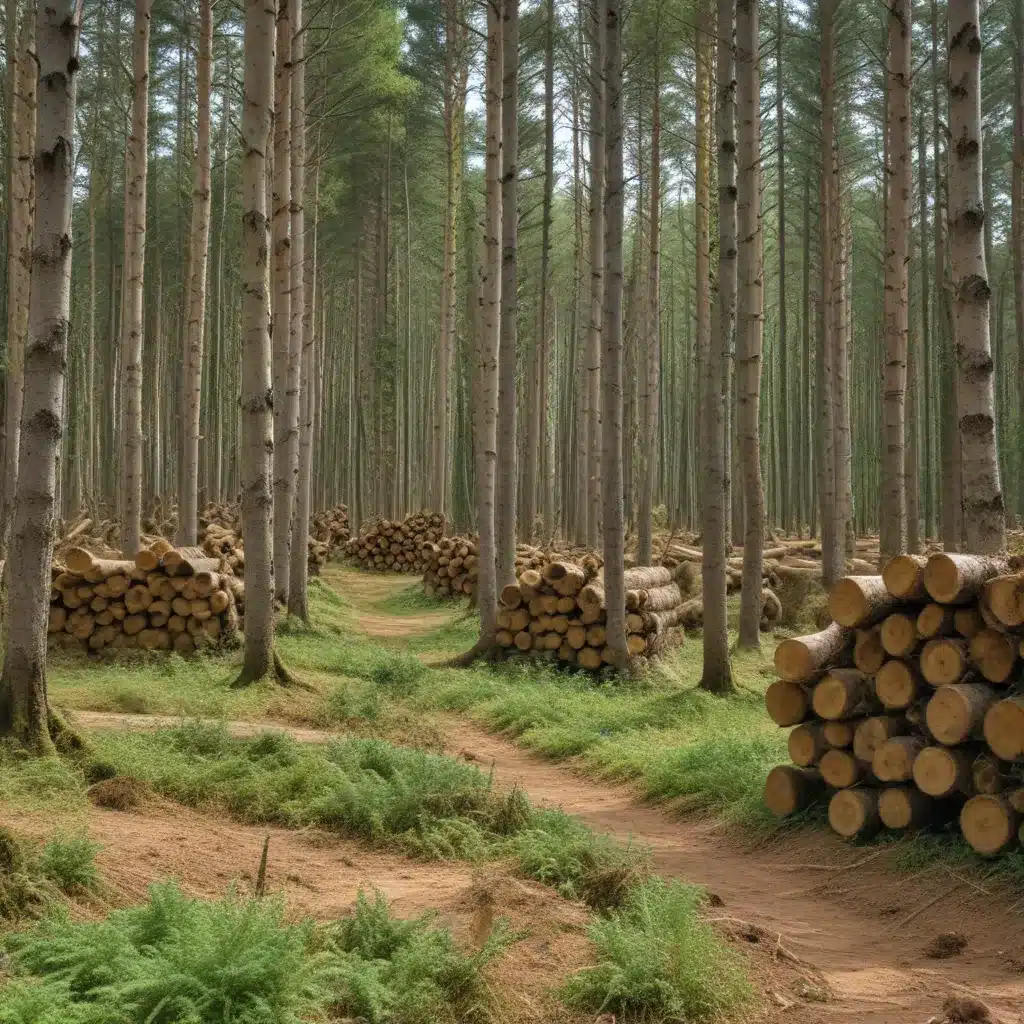
The Untapped Potential of Non-Timber Forest Products
In the ever-evolving landscape of the IT industry, it’s easy to get caught up in the constant stream of technological advancements and digital solutions. However, there is another realm that deserves our attention – the sustainable management of non-timber forest products (NTFPs). As seasoned IT professionals, we can offer practical insights and in-depth understanding to help promote the growth of the forest bioeconomy and ensure the responsible utilization of these invaluable natural resources.
NTFPs encompass a diverse range of goods and services that are derived from forest ecosystems, beyond the traditional timber-based industries. These include resin, cork, aromatic and medicinal plants, pine nuts, mushrooms, truffles, chestnuts, honey, and a myriad of other products. Interestingly, the economic impact of NTFPs can account for up to 75% of the value of timber, showcasing their significant contribution to the overall forest economy.
Unlocking the Potential of NTFPs
The IMFOREST project, a collaborative initiative spearheaded by the Forest Science and Technology Center of Catalonia (CTFC), aims to harness the power of NTFPs to diversify income sources in rural areas and drive innovation in the green economy. By identifying the productive potential of bioproducts and services associated with NTFPs, designing sustainable management tools, and implementing innovative projects, IMFOREST is poised to address the pressing challenges of climate change and rural abandonment.
One of the key goals of IMFOREST is to promote the sustainable management of NTFPs, ensuring that these natural resources are utilized responsibly and in a manner that preserves the delicate balance of forest ecosystems. This includes the development of tools and applications for characterization, monitoring, and certification of NTFP-producing areas, such as the inclusion of these areas in the PEFC Sustainable Forest Management Certification.
Fostering a Resilient and Equitable Forest Bioeconomy
By supporting the development of innovative projects and promoting capacity-building initiatives, IMFOREST aims to create new green jobs, with a special focus on empowering young people, women, and individuals over 45 residing in rural areas. This holistic approach not only contributes to the diversification of income sources but also promotes gender equality and tackles the issue of rural depopulation.
Moreover, IMFOREST is actively working on the creation of legal and governance tools to generate resilient green jobs, foster productive networks, and contribute to the fight against depopulation. By addressing these multifaceted challenges, the project represents a significant step towards a more robust and equitable future for rural communities and the environment.
Collaborative Efforts and Sustainable Partnerships
The IMFOREST project is a collaborative endeavor, bringing together a diverse consortium of partners, including the Forest Services and Promotion Center Foundation and its Industry of Castilla y León (CESEFOR), the Confederation of Forest Owners’ Organizations of Spain (COSE), the Institute of Forest Sciences of INIA-CSIC, and the Spanish Association for Forest Sustainability (PEFC ESPAÑA).
This collaborative approach not only fosters knowledge sharing and interdisciplinary expertise but also ensures the development of comprehensive solutions that address the multifaceted aspects of forest bioeconomy and NTFP management. By leveraging the strengths and perspectives of various stakeholders, IMFOREST is well-positioned to drive sustainable change and create lasting impact.
Promoting Bioeconomy and Biodiversity Conservation in the Amazon
The efforts to promote the forest bioeconomy and sustainable management of NTFPs extend beyond the Spanish context, with similar initiatives underway in other regions, such as the Amazon basin. The Inter-American Development Bank (IDB) and Brazil’s Ministry of Environment and Climate Change have recently announced two agreements to support the development of the National Bioeconomy Strategy and the “ARPA for Communities” initiative.
The “ARPA for Communities” project, which builds on the successful experience of the Amazon Region Protected Areas (ARPA) program, aims to support local communities in building new nature-based business ventures focused on NTFPs, sustainable management, and agroforestry systems. This collaborative effort not only promotes the sustainable use of forest resources but also contributes to biodiversity conservation in the Amazon.
Leveraging IT Solutions for Sustainable Forest Management
As IT professionals, we can play a crucial role in supporting the efforts to promote the forest bioeconomy and the sustainable management of NTFPs. By leveraging our expertise in data analysis, digital tools, and innovative technologies, we can assist in the development and deployment of applications and online viewers for the characterization, monitoring, and certification of NTFP-producing areas.
For example, the IMFOREST project plans to create innovative and demonstrative projects, as well as online tools and applications, to aid in the sustainable management of NTFPs. By integrating our tech-savvy know-how with the project’s goals, we can help amplify the impact and reach of these initiatives, ensuring that the forest bioeconomy flourishes in a responsible and data-driven manner.
Conclusion: A Sustainable Future Rooted in Nature
In the ever-evolving landscape of the IT industry, it’s essential to broaden our perspectives and consider the interconnectedness of technology, sustainability, and the natural world. The sustainable management of non-timber forest products offers a unique opportunity to diversify income sources, create resilient green jobs, and contribute to the fight against climate change and rural depopulation.
By embracing the principles of the forest bioeconomy, we can play a pivotal role in shaping a future where technology and nature work in harmony, driving innovation, fostering environmental stewardship, and empowering rural communities. As seasoned IT professionals, we have the knowledge and expertise to make a tangible difference in this crucial endeavor.
I encourage you to explore the wealth of resources available on the IT Fix blog and stay informed about the latest developments in the field of sustainable forest management and the forest bioeconomy. Together, we can unlock the untapped potential of non-timber forest products and contribute to a more resilient and equitable future for all.












